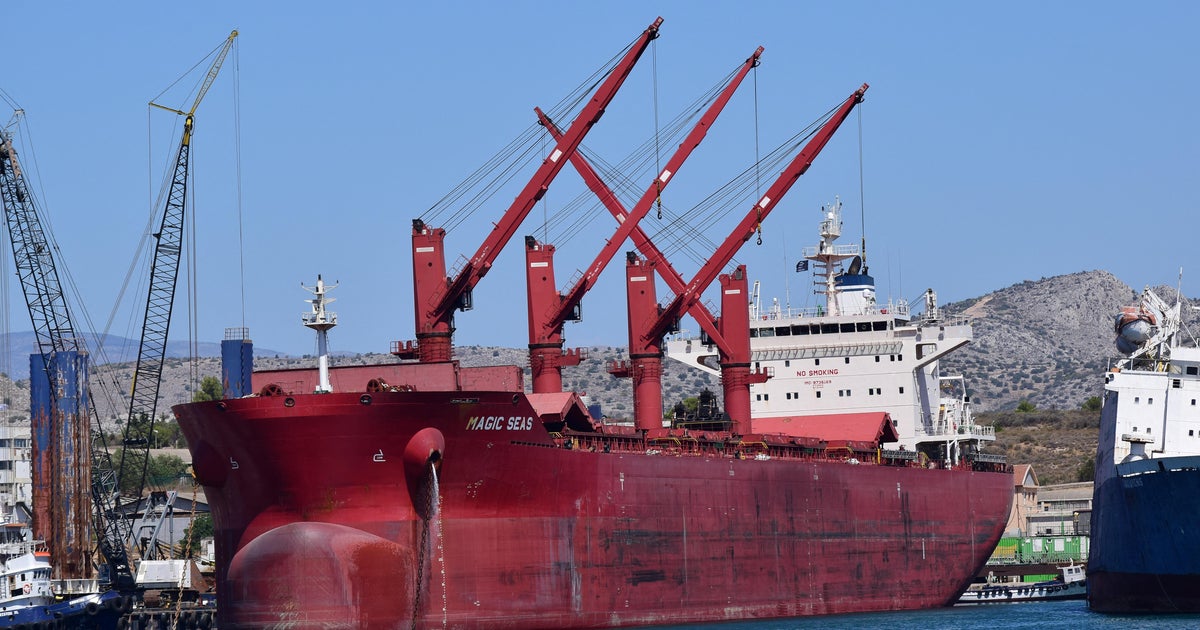Houthi Rebels Intensify Attacks on Cargo Ships in the Red Sea, Resulting in Fatalities
Recent Houthi rebel attacks in the Red Sea have killed three mariners and injured others, raising concerns over maritime security and potential escalation in the region.
Subscribe to unlock this story
We really don't like cutting you off, but you've reached your monthly limit. At just $5/month, subscriptions are how we keep this project going. Start your free 7-day trial today!
Get StartedHave an account? Sign in
Overview
- Yemen's Houthi rebels have intensified attacks on cargo ships in the Red Sea, targeting over 100 vessels since November 2023.
- A recent attack on the Liberian-flagged cargo ship Eternity C resulted in the deaths of three mariners and injuries to two others.
- Conflicting reports indicate that two ships have sunk, with Houthi claims of responsibility for the sinking of the Magic Seas.
- Crew members are stranded on drifting vessels after attacks, highlighting the dangers faced by maritime operations in the region.
- The situation raises concerns of escalation, potentially involving U.S. and Western forces amid ongoing tensions in the Middle East.
Report issue

Read both sides in 5 minutes each day
Analysis
Center-leaning sources frame the Houthi attacks as significant threats to maritime security, emphasizing the human cost and geopolitical implications. They express concern over escalating violence in a sensitive regional context, hinting at potential Western military involvement, while maintaining a focus on factual reporting of casualties and events.
Articles (8)
Center (2)
FAQ
The Houthis are employing a range of weapons and tactics including one-way unmanned aerial vehicles (UAVs), unmanned surface vehicles (USVs), unmanned underwater vehicles (UUVs), ballistic and cruise missiles, small arms fire from small boats, explosive boat attacks, and illegal boardings or seizures of vessels[3]. These attacks target both commercial and military ships transiting the southern Red Sea, Bab el Mandeb Strait, and Gulf of Aden.
Houthi attacks have caused a dramatic shift in shipping routes, with many vessels now bypassing the Red Sea and Suez Canal for the longer route around the Cape of Good Hope. This detour adds approximately 11,000 nautical miles, ten days of travel, and an extra $1,000,000 in fuel costs per voyage. From December 2023 to February 2024, container shipping through the Red Sea decreased by 90%, and spot container rates from Shanghai to Europe rose by 256%[2].
International coalitions such as the U.S.-led Operation Prosperity Guardian and the European Union-led Operation Aspides have been formed to protect shipping lanes, intercept Houthi weapons, escort merchant vessels, and salvage stricken ships. U.S. and British military strikes—under the code name Poseidon Archer—have targeted Houthi weapons stocks and launch sites in Yemen[1].
In January 2025, Houthi officials announced they would cease attacks on U.S., U.K., and Israeli-flagged or affiliated vessels—except if they are wholly owned by Israeli individuals or entities—and would continue targeting such ships if they fit their stated conditions. However, these statements are treated with skepticism by maritime stakeholders due to ongoing threats[3].
The continued Houthi attacks raise significant concerns about further escalation, especially as the presence and actions of Western naval forces, such as those from the U.S. and EU, have not yet deterred the group. U.S., British, and allied strikes against Houthi assets may continue as self-defense measures, but the risk of broader conflict remains high due to ongoing regional tensions.
History
- 4M

 4 articles
4 articles








